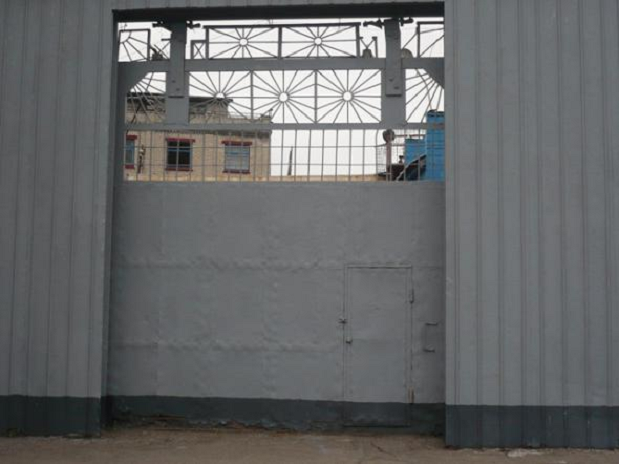
Rightless convicts
Almost half a million people have fled the annexed Crimea and the occupied Donbas for the government-controlled territory of Ukraine over less than a two-year period. But there are those who are unable to do so due to objective reasons – they were serving prison terms or were arrested awaiting trial at the moment the war broke out.
According to official information of the State Penitentiary Service (SPS), there are 14 penitentiary institutions in the militant-controlled areas of Donetsk region and another 15 – in those of Luhansk region. Five institutions are located in the annexed Crimea. The data on the citizens of Ukraine serving prison terms in those institutions have not been updated since November 1, 2014. According to these data, as of this date, 9,511 people were recorded in the SPS institutions in Donetsk region; 6,426 people in Luhansk region; and 3,295 people in the annexed Crimea.
Forced to become "Russians"
Immediately after the annexation of the Ukrainian peninsula in the spring of 2014, Ukraine tried to resolve the issue of prisoners and transfer them to the mainland. Considering the fact that almost half of such prisoners are originally from the other regions of Ukraine, the official Kyiv stressed during the talks that they hardly wished to become part of the “Russian world.” This idea was supported both by the families of these prisoners and human rights activists.
The relatives began to fear that their loved ones would be forced to acquire Russian citizenship, thus allowing their transfer to some penitentiaries in the Russian territory.
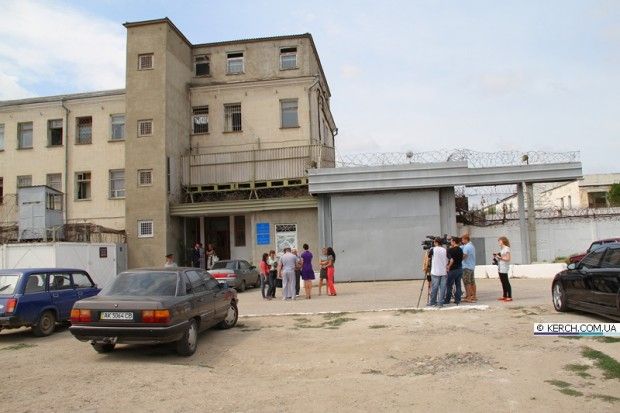
Human rights activists were concerned about possible violations of prisoners' rights with respect to a compulsory acquisition of citizenship, as well as a high probability of re-qualification of penal articles, on which a number of convicts were serving sentences, from the Ukrainian to the Russian legislation, which could entail increased terms. In addition, there were concerns regarding the fact that the Russian penitentiary system is much harsher than that the Ukrainian one. Ukraine has the state of the prisoners controlled by lawyers and journalists while drug addicts receive substitution treatment. On the contrary, the Russian system provides no such features to prisoners.
In the spring of 2014 in GPTS estimated that the evacuation of the Crimean prisoners may need at least 3 days, dozens of paddy wagons and 30 special wagon trains. And, of course, the money - about 200 thousand UAH. In addition, Ukraine was planning to apply to prisoners in the Crimea, the amnesty law, and part of the Crimean prisoners (about 400 people) could take advantage of this chance to leave the peninsula.
Occupation authorities do not care about the rights of prisoners
However, to implement the idea and ensure the security of convoys, Ukraine needed to get an approval from the self-styled occupation authorities in Crimea. But, rather expectedly, these “authorities” couldn’t care less about the fate of the prisoners. "In fact, there are mass violations of the rights of citizens who are illegally held in custody, and these violations are committed by the authorities of the occupation forces and the occupation army in the territory of Ukraine," Justice Minister Pavlo Petrenko said at the time.
However, the Ministry of Justice of Ukraine started negotiations with Russia on the transfer of prisoners from Crimea to the Ukrainian mainland. But by the summer of 2014, the talks moved to another level. It was a trilateral monitoring mission with participation of the Ukrainian and Russian Ombudsmen, as well as the European Council’s Commissioner for Human Rights, who had to agree on a procedure for the evacuation.
But only in six months, in February 2015, the Office of Russia’s Ombudsman informed Ukraine that the only 22 of 3,000 prisoners in Crimea needed extradition.
Moreover, the fears of the prisoners’ relatives and human rights activists were confirmed: according to the Federal Penitentiary Service of the Russian Federation, more than 1,200 prisoners reportedly expressed the will to become citizens of the Russian Federation, and 745 of them have even received Russian passports. The others are now serving sentences under verdicts "brought in line with the Russian legislation."
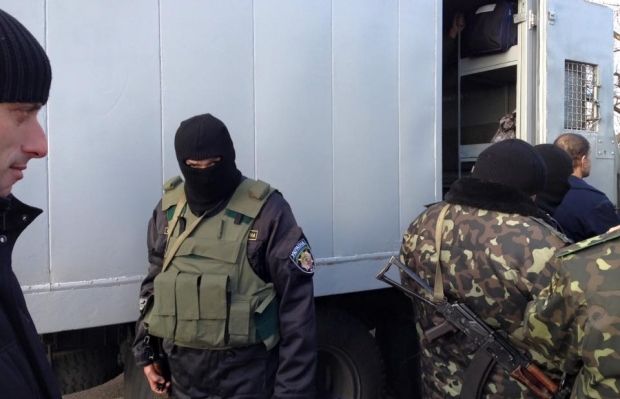
At the same time, Ombudsman of the Russian Federation Ella Pamfilova said that only 18 Crimean prisoners expressed the will to retain the Ukrainian citizenship, and 22 continue to demand extradition to Ukraine. However, according to human rights activist Elena Povidaychyk, Crimean prisoners are "absolutely rightless," and there is a lot more of those who wish to be transferred to mainland Ukraine. "They're just afraid to apply. I’ve already told two years ago about one of the prisoners in Crimea, who requested such assistance. But after being "treated" by the Russian penitentiary officers, he requested to annul his appeal," she said.
The human rights activist’s words are confirmed with the fact that in the summer of 2014, there were hundreds of appeals to the Ukrainian Ombudsman from the Ukrainian citizens held in Crimean prisons, with complaints of discrimination based on nationality, as well as the ill-treatment resulting from refusing citizenship of the Russian Federation. There are no such appeals today.
Collisions of a "hybrid war"
Russia insists that it may transfer the prisoners to Ukraine under the European Convention on the Transfer of Sentenced Persons. However, the Convention requires that such movement cannot take place within one state. But, according to the international law, Crimea is a temporarily occupied territory of Ukraine.
The issue of evacuation of prisoners has not moved an inch further ever since – Russia and Ukraine cannot agree on transfer procedure.
The reason lies in the collisions of a "hybrid war.” Russia insists that it may transfer the prisoners to Ukraine under the European Convention on the Transfer of Sentenced Persons. However, the Convention requires that such movement cannot take place within one state. But, according to the international law, Crimea is a temporarily occupied territory of Ukraine. Therefore, the Office of the Ukrainian Ombudsman has drafted a memorandum of Ukraine’s and Russia’s ombudsmen on the application in this issue of a special mechanism, the so-called ad hoc practice. Ukraina put this proposal forward in the summer of 2015, sending a draft memorandum to the Commissioner for Human Rights in the Russian Federation. "To date, no response has been received," the Office of the Ombudsman of Ukraine said.
49 "lucky" ones
As for Donbas, President of Ukraine Petro Poroshenko signed in November 2014 a decree "On urgent measures to stabilize the socio-economic situation in Donetsk and Luhansk regions," which, among other things, instructed the Ministry of Justice to take immediate action to transfer the bodies and institutions of the SPS as well as the prisoners and those taken into custody; and to draft proposals for amnesty to those serving sentences for minor and moderate crimes. However, there were certain difficulties with following these instructions: constant shelling did not allow forming a more or less secure convoys.
First signs of success were reported only after the signing of the Minsk-2 deal in February, 2015. At one of the meetings of a Tripartite Liaison Group, OSCE and the International Committee of the Red Cross agreed to assist in the transfer of prisoners from the militant-controlled territories. According to Iryna Gerashchenko, Presidential envoy for the peaceful settlement of the situation in Donetsk and Luhansk regions to the Contact Group, nearly 1,000 people applied for evacuation, to serve sentences in Ukrainian prisons.
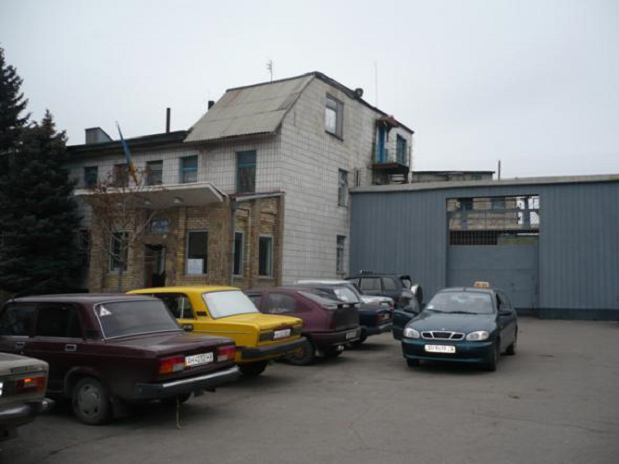
However, only three transfers of prisoners were successfully completed from the “DPR”-controlled areas of Donbas over the past year. According to the Ukrainian Ombudsman’s Office, only 49 people were taken out of the occupied territories. In July and August of 2015, Ukraine took 29 convicts from a Donetsk pre-trial detention center and another 20 - from Yenakiyeve penal colony No.52 in December, 2015.
Most of the evacuees are non-citizens of Ukraine that are to be extradited as part of Ukraine's international obligations, as well as those who were in held in pre-trial detention centers for a forensic psychiatric examination, or "in transit" to be forwarded to other penitentiaries, but "stuck" there since the beginning of hostilities, or expected revision of their cases by the first instance courts.
From custody to slavery
As for the other prisoners in Donbas, no one in Ukraine can either name the exact number of prisoners or tell how they manage to survive amid war. If any information leaks, it’s only through relatives and human rights activists.
Officially, as of December 23, 2015, 282 applications for transfer to the government-controlled territory was registered by the SPS. However, according to human rights activists, the convicts are terrified to apply. "They can be punished for such things – be forced to work for the militants, and in the worst case, even get shot," Povidaychyk said.
No one in Ukraine can either name the exact number of prisoners or tell how they manage to survive amid war. If any information leaks, it’s only through relatives and human rights activists.
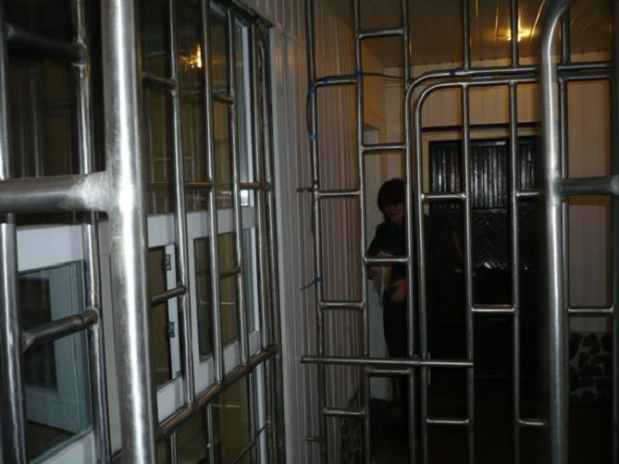
The human rights activist also said that some prisoners were freed as a "reward" for their support of the unrecognized republics. Some of those freed were proud to become part of “DPR-LPR,” and some appealed to human rights activists to help them to pass checkpoints and enter the government-controlled Ukrainian territory. There were also those coming to the checkpoints whose penitentiaries were shelled to the ground, according to her.
Those who remain in prisons are in appalling conditions. "In Donetsk pre-trial detention center, the situation is a little better in the sense that some of the prisoners have relatives in the territories beyond government control, who send them food, at least in small quantities. But the situation in penal colonies [across the rural areas of the militant-controlled territory] is much worse: people are starving. There's no electricity, no heat, no water," said the human rights activist.
Convicted under “DPR-LPR laws”
Besides, the prisons are replenished by those who are convicted by militants’ “courts.” "Among them there are the Ukrainian troops as well as local civilians, sentenced to ten years in prison under the "laws" of ‘DPR and ‘LPR’,” she said.
This information is confirmed by the deputy of Severodonetsk city council, Serhiy Shakhov. "To date, there is no decision of the central government with respect to those people who, in fact, are hostage to the militants. Some of them were sentenced to 15-20 years of imprisonment in the past two years, for example, for flying the Ukrainian flag at the pro-Ukrainian rallies even before the Anti-Terrorist Operation began. And there is no statistics on how many of these people have been thrown into basements and in jail for their pro-Ukrainian position,” he said.
In his opinion, international organizations should be involved in solving the problems of prisoners in the areas beyonf government control, "because people are suffering, dying, and we do not even know how many of them there are."
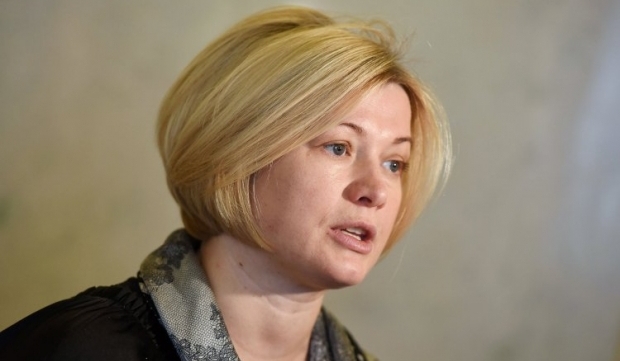
However, according to Irina Gerashchenko, the problem is that in the past year, the United Nations, Doctors without Borders, the OSCE missions, and the missions of the ICRC were only able to communicate with the convicts in Ukraine-controlled prisons, including on the boundary line. "In the occupied territories they got no admission to prisons," she said.
Is the international community powerless?
According to ICRC spokesperson Matthias Weinreich, the organization carried out 100 missions in 2015, coming to 36 penitentiaries and visiting more than 600 detainees. "Only four of them were in areas that are not controlled by the Ukrainian government," he said.
It was in January, 2015. Today, the mission has no access to the penitentiaries in the militant-controlled areas of Donbas, said Weinreich, adding that the organization is in a constant dialogue with those responsible from the militant-controlled side, telling them why it is important to visit prisoners, offering assistance and requesting access.
It is a big question, whether it will be possible to find an agreement. There was a time when the militants did not reject humanitarian assistance from various organizations, besides Russian “humanitarian convoys” and did not interfere with the delivery of medicines and food, including to the penitentiaries. But today, the situation has changed. The talks with ICRC are being delayed constantly while the "Doctors without Borders" have been banned altogether in the “DPR-LPR” since last fall.
Anyway, after the conflict ends, someone will have to be held responsible for everything that happened with the hostages – the convicts who were not only forced to fall under occupation but were also not evacuated when it was possible. The defendant will not only be the Ukrainian officials who failed to organize a timely transfer and the militants who tried to prevent it. We should not rule out that the situation of prisoners under the occupation will be yet another volume in a case file of the international criminal investigation against Russia.
Tatiana Urbanskaya

